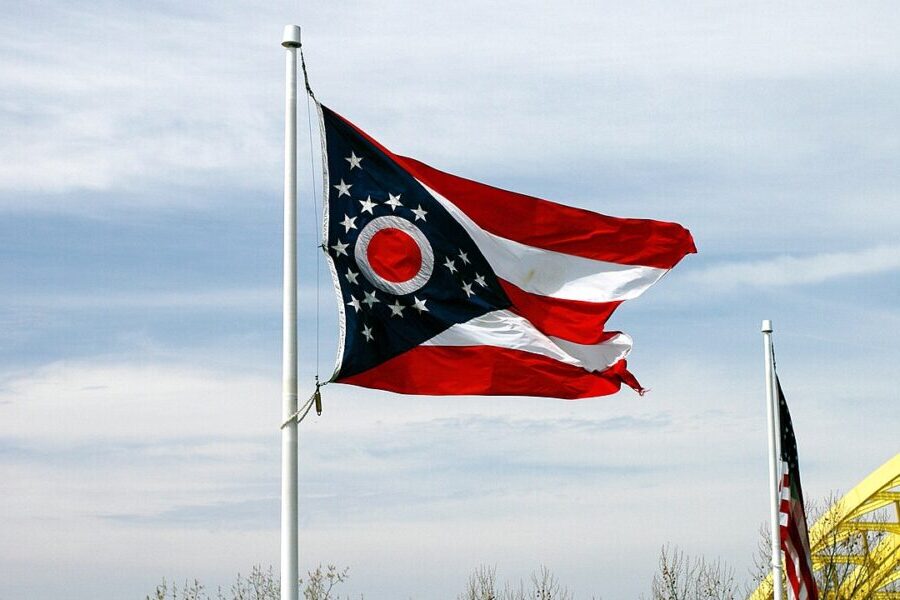Ohio pauses updates to sports betting regulation as MLB limits prop wagers

The Ohio Casino Control Commission and Governor Mike DeWine have opted against introducing fresh sports betting rules in the state after MLB imposed new restrictions on micro-prop wagers across the US, according to the Independent.
Under the league’s policy, authorized partners such as FanDuel, DraftKings, BetMGM, Fanatics, and Bet365 will cap certain pitch-level prop bets at US$200 and remove them from parlays. These markets cover actions like pitch speed or whether a pitch is a strike or a ball.
The move follows federal charges filed against Cleveland Guardians players Luis Ortiz and Emmanuel Clase, who prosecutors allege manipulated individual pitches as part of a betting scheme involving wire fraud conspiracy and bribery.
An MLB statement said, “Micro-bet pitch-level markets present heightened integrity risks because they focus on one-off events that can be determined by a single player and can be inconsequential to the outcome of the game”. The league added that limiting payouts “reduces the payout for these markets and the ability to circumvent the new limit”.
DeWine, who had previously criticized prop betting, welcomed the measures.
“By limiting the ability to place large wagers on micro-prop bets, Major League Baseball is taking affirmative steps to protect the integrity of the game and reduce the incentives to participate in improper betting schemes,” he said, adding that the league’s “approach is sensible and well worth pursuing.”
The Ohio Casino Control Commission supported MLB’s action, noting that imposing state-specific rules now “could jeopardize the progress being made,” though it kept the option of future regulation open.
Abi Bray brings strong researching skills to the forefront of all of her writing, whether it’s the newest slots, industry trends or the ever changing legislation across the U.S, Asia and Australia, she maintains a keen eye for detail and a passion for reporting.
Verticals:
Sectors:
Topics:
Dig Deeper
The Backstory
Why Ohio hit pause as the rules shifted midseason
Ohio’s decision to shelve new sports betting regulations came as Major League Baseball and leading sportsbooks moved to curtail the riskiest corners of in-play wagering. The state’s Casino Control Commission said state-specific rules could undercut national progress after MLB and operators agreed to cap certain pitch-level markets at $200 and bar them from parlays. That nationwide alignment, described in detail in reporting on the $200 limit and parlay ban, was designed to blunt manipulation risks exposed by a federal investigation into alleged pitch rigging by two Cleveland Guardians pitchers. The convergence of a high-profile probe, league-imposed limits and pressure from state leaders pushed Ohio toward a wait-and-see posture rather than unilateral rulemaking.
The new guardrails target micro-prop bets that hinge on a single pitch or discrete moment. MLB argued those markets carry heightened integrity risks because they can be determined by one player and often do not affect the final score. Ohio Gov. Mike DeWine, who has urged aggressive state action on props, welcomed the league’s steps. With operators from FanDuel to DraftKings already complying, the state sees a broader solution emerging without the friction of patchwork rules. For now, Ohio is keeping future regulation on the table if national measures fall short.
The Guardians probe that set the tone
The inflection point arrived with a gambling investigation centered on Cleveland pitchers Emmanuel Clase and Luis Ortiz. Integrity monitors flagged suspicious betting tied to specific pitches in June. By early July, Ortiz was placed on paid leave, followed weeks later by Clase. MLB has since extended those leaves while it continues its inquiry. The team acknowledged the prolonged step in a public statement, while Ohio regulators launched their own review. The escalation is traced in coverage of the extended leave and the state’s parallel probe.
Prosecutors later alleged the pair participated in a scheme that generated about $450,000 in winnings by manipulating pitch outcomes. The case crystallized integrity risks around “fast markets” where a single throw dictates a payout. The league’s tighter limits target that strain of wagering directly. Ohio’s pause recognizes that league-level remedies, if embraced by all major operators, can curb exposure more effectively than one state’s rulebook.
The Guardians’ communications underscored the sensitivity. The club relayed updates through social media as MLB and the Players Association extended the non-disciplinary leave. The team’s statement can be seen in the Guardians’ post on X.
Political pressure and a pushback campaign
DeWine has argued that micro and player props invite harassment of athletes and threaten game integrity. He publicly pressed the commission to purge prop bets from Ohio’s catalog, building momentum as the Guardians probe widened. His request is detailed in an official governor’s office statement calling for prop bet removal.
The governor’s stance met resistance at the Statehouse. Rep. Brian Stewart, a Republican who backed the 2023 launch of legal sports wagering, said adults should retain access to prop markets that account for a sizable share of tax revenue. He noted sports betting brought in $359 million in state taxes since rollout, and he vowed to oppose a broad ban. His objections are outlined in coverage of the legislative split over DeWine’s plan. Stewart also amplified his position on social media, including in a post arguing props should remain legal.
The public tug-of-war between the governor and lawmakers set the stage for Ohio’s regulatory pause. With MLB enforcing a national ceiling on the riskiest pitch bets and the industry moving in lockstep, state regulators can gauge if the integrity threat abates without outright bans that could face political and legal headwinds.
Leagues tighten markets as the industry innovates
Baseball is not alone. The NBA and its players association have urged limits on certain player props after a series of investigations, including the guilty plea of Jontay Porter on conspiracy charges tied to manipulating his own performance. The league has already pressed partners to remove specific offerings for two-way players. The broader case for restraint is captured in reporting on the NBA union’s call to curb prop markets. Together, the MLB and NBA moves signal a shift toward narrowing bets most susceptible to manipulation or abuse.
At the same time, sportsbooks and suppliers continue to expand in-play features that were the growth engine of U.S. betting. Ahead of the 2025 season, operator platform Altenar touted enhanced MLB coverage with live bet builders and a wider slate of props, powered by official data feeds. That product push, outlined in a look at Altenar’s expanded MLB offering, shows the commercial pull of micro and proposition betting even as leagues and regulators prune the most vulnerable markets.
This tension—innovation driving engagement versus integrity guarding the field—frames the stakes for Ohio. The state is weighing whether federal investigations and national operator policies can discipline the market without suppressing a lucrative product set that draws casual fans into live wagering.
What the $200 cap means for bettors and regulators
The MLB-operator agreement limits wagers on pitch-by-pitch outcomes and removes those bets from parlays, where small legs can balloon payouts. DraftKings and FanDuel have already updated menus to comply, and other partners such as Caesars and BetMGM are covered. The intent, as summarized in the nationwide cap announcement, is to reduce incentives for bad actors without scrapping every micro market.
For Ohio, the cap offers a de facto baseline while the commission monitors market behavior. If suspicious activity recedes and athlete harassment cools, the state may stick with the national guardrails. If not, the commission left the door open for Ohio-specific restrictions, including targeted bans on categories that remain problematic. That approach mirrors a wider trend: retrenchment on the sharpest edges of props while preserving most pregame and team markets that see broader, cleaner liquidity.
The outcome could shape how other states recalibrate. A national standard on the most fragile markets reduces the arbitrage that can follow state-by-state disparities. It also gives lawmakers cover to resist sweeping bans if integrity data shows improvement.
The next data points will come from the Guardians case and season-long monitoring of betting patterns. If the federal probe leads to discipline and the cap dulls manipulation opportunities, Ohio’s pause will look prescient. If problems persist, the state’s regulatory playbook will be back on the field.







